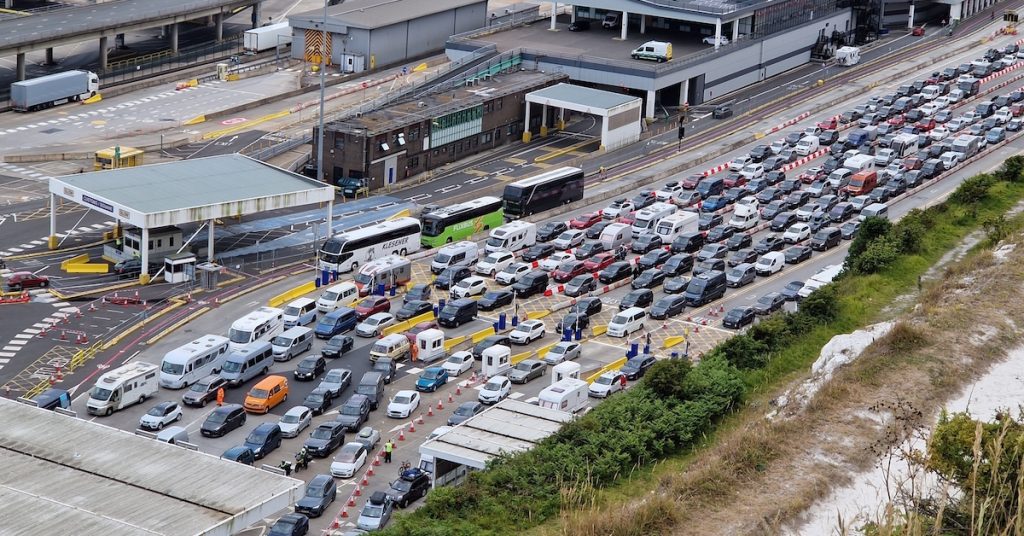The impending launch of the EU’s digital Entry/Exit System (EES) has raised alarms about significant travel disruptions.
- Kent County Council and tourism leaders have informed MPs about potential 14-hour traffic queues at the Dover and Eurotunnel borders.
- The new system, set to start post-2024 Paris Olympics, will affect non-EU travellers with new biometric checks.
- Authorities warn that UK-EU supply chains might face severe delays, impacting the national economy.
- Key stakeholders urge government collaboration for managing these challenges efficiently.
The EU is set to introduce a digital Entry/Exit System (EES) later this year, which is expected to cause significant disruptions at the Port of Dover and Eurotunnel borders. Authorities, including Kent County Council leader Roger Gough and Visit Kent chief executive Deirdre Wells, have voiced concerns before the EU Scrutiny Committee of MPs, highlighting the potential for what they described as a “national problem.”
Scheduled after the Paris Olympics in July and August 2024, the EES will require non-EU residents to register at the Schengen Area border. This system aims to replace passport stamping with a digital registry involving facial images and fingerprints, a process anticipated to increase processing time at border checks significantly.
The warning underscores a scenario where traffic queues might extend up to 14 hours for outbound vehicles heading to Europe. Such predictions are based on models created by the Port of Dover, ferry operators, and government departments, which depict a “reasonable worst-case scenario.”
With the Port of Dover and Eurotunnel serving as the UK’s primary gateways to Europe, there is heightened concern about the adverse effects on supply chains. The introduction of EES could lead to substantial disruptions, with local authorities stressing that this issue transcends regional impact, evolving into a broader national concern.
In reflecting on past experiences from the summer of 2022, Gough provided an example where travellers endured over 15-hour delays due to traffic congestions, cautioning that the EES could exacerbate such issues. He advocated for increased funding for managing traffic and improved facilities for handling EU-bound freight.
Furthermore, Deirdre Wells added that prolonged traffic queues not only deter visitors but also harm local communities and businesses. In a call for action, she affirmed readiness to work collaboratively with government entities and stakeholders to ensure the EES implementation is as seamless as possible.
Addressing these challenges through coordinated efforts is paramount to mitigate the risk of severe disruptions.

